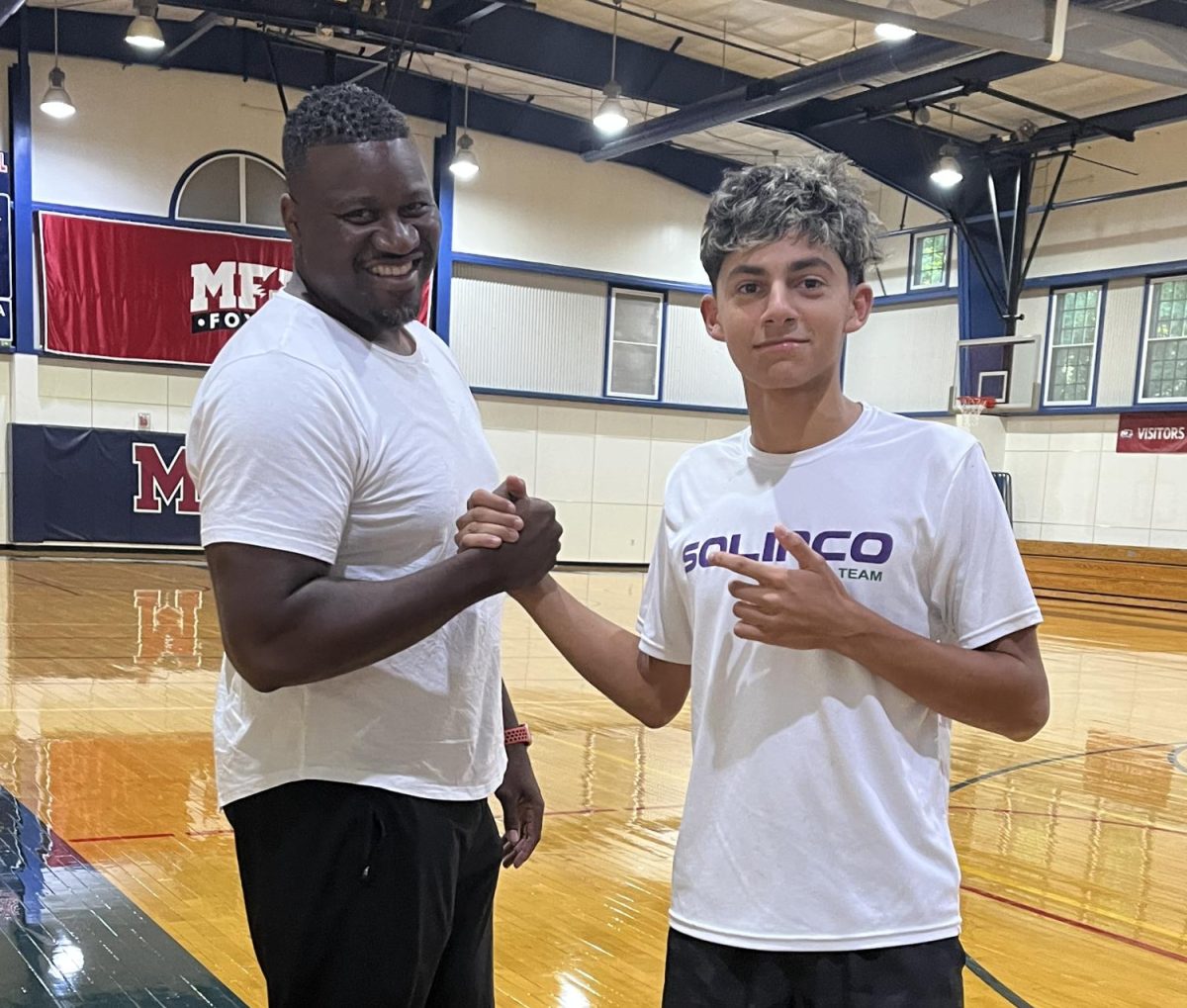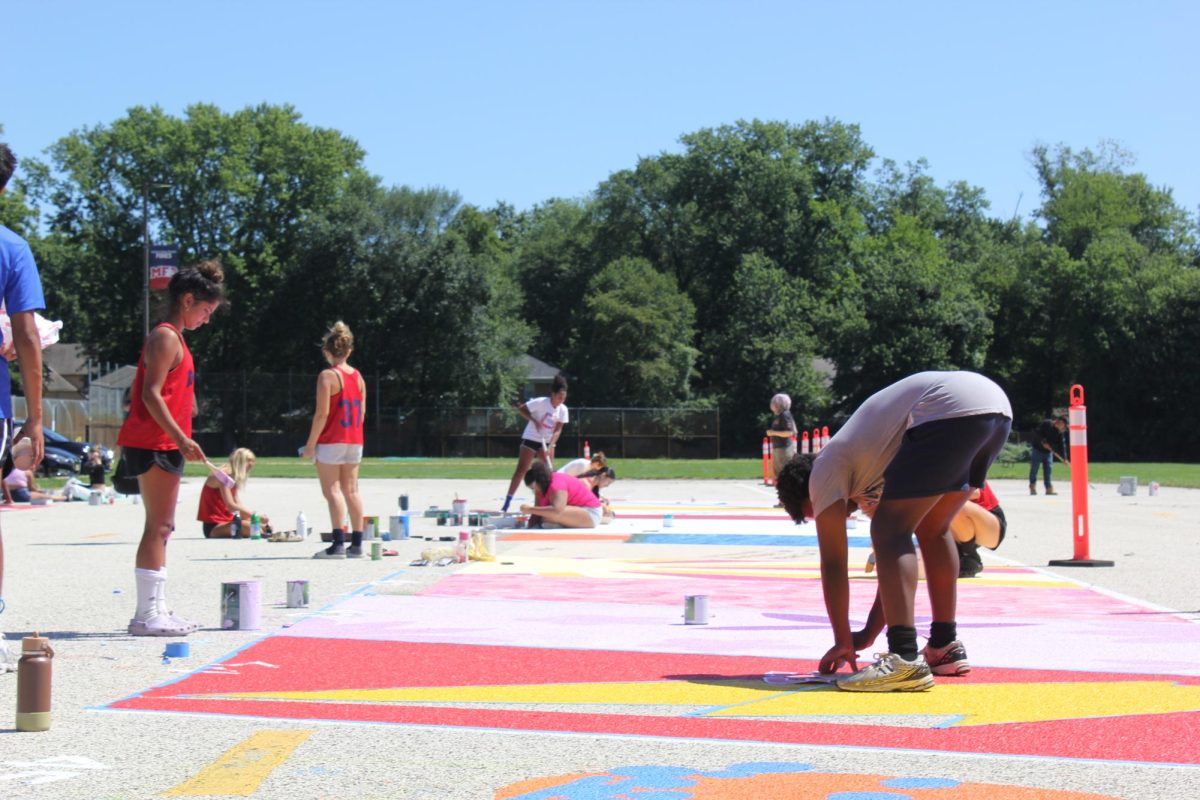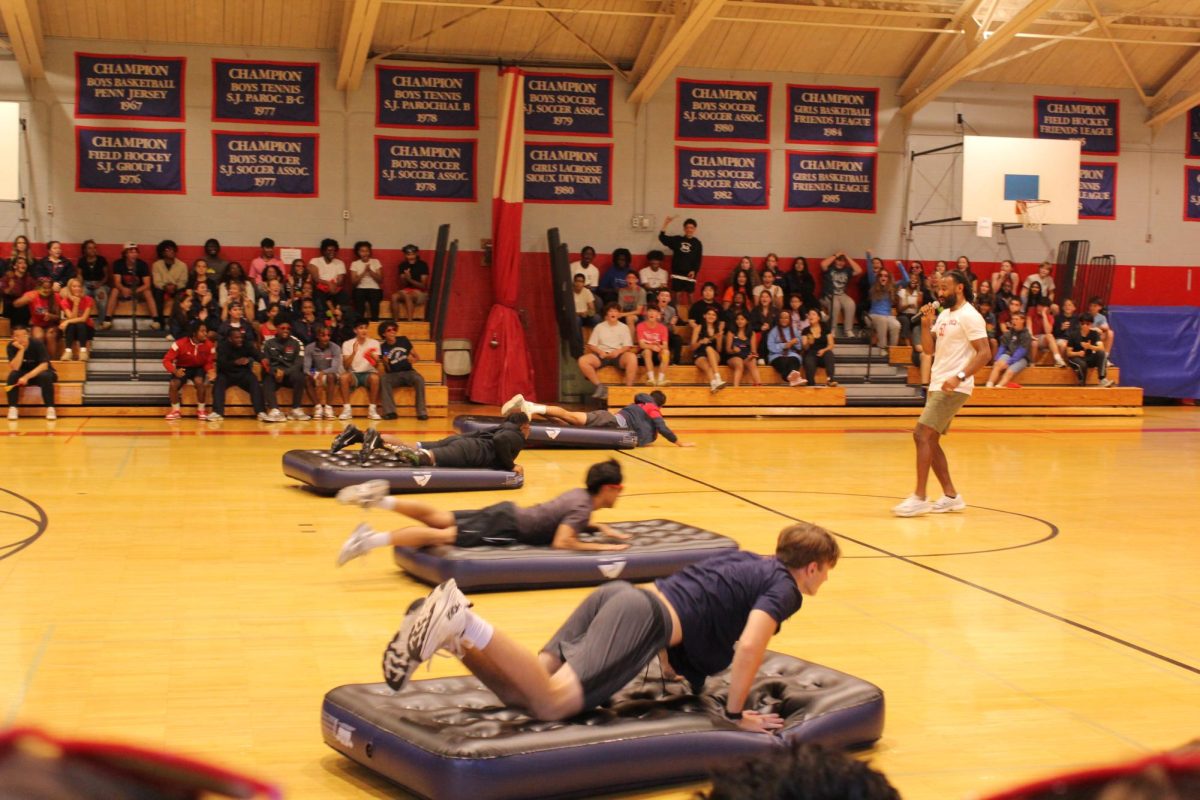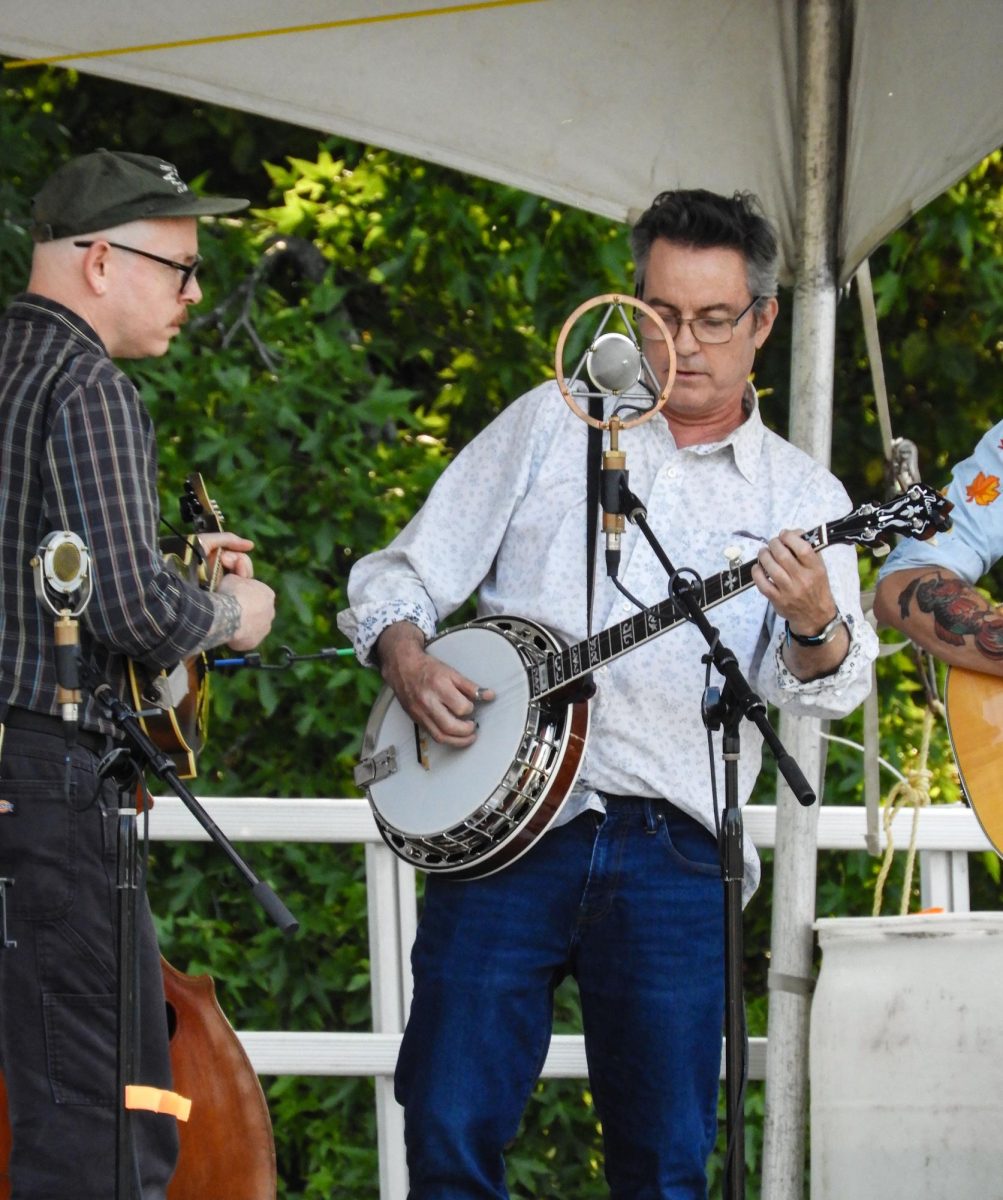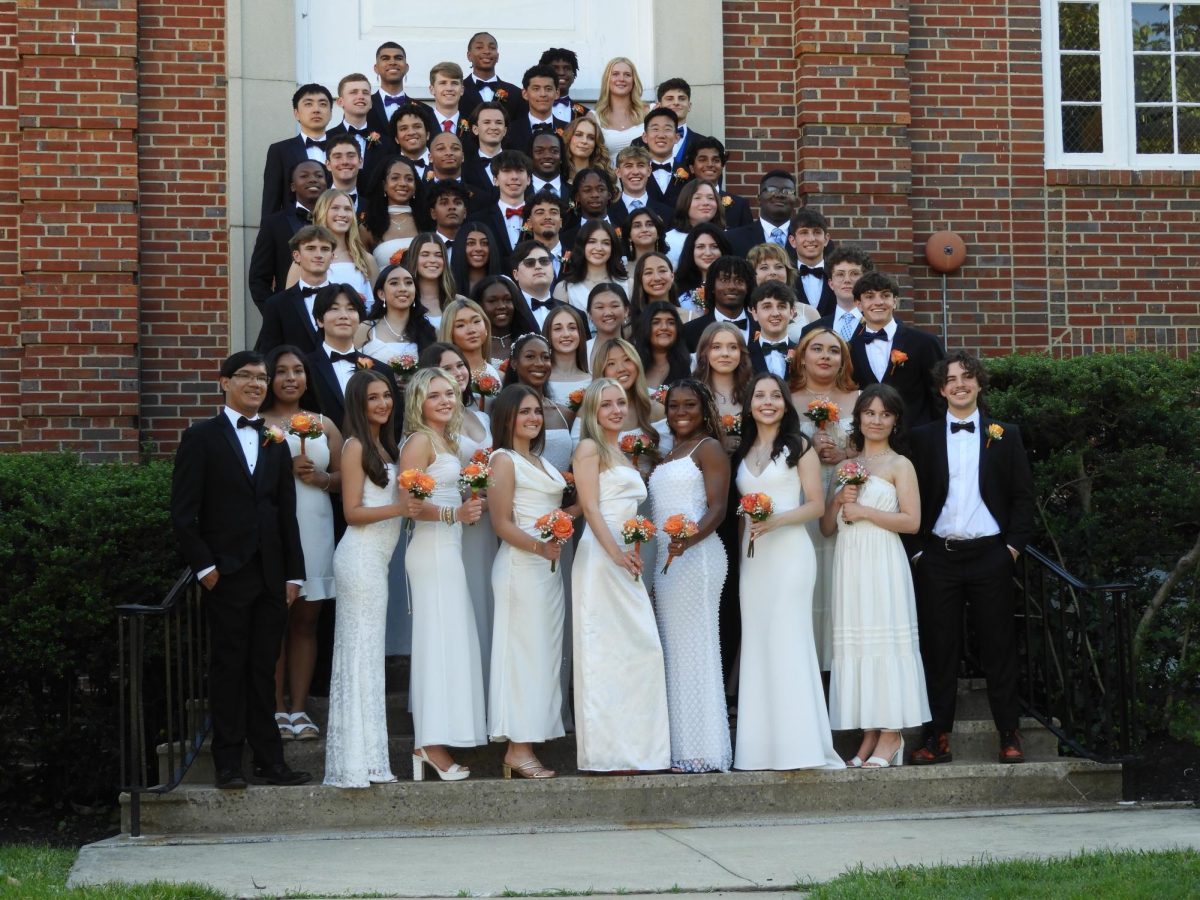
Alice Paul’s story provides a wonderful narrative about how passion for activism begins and is nurtured, as well as the importance of activism. Her name is commonly associated with Women’s History Month, but more importantly, it gives students a chance to reflect on her story and what we as a community should take away from it.
Inspirational, trail-blazing, and independent, Alice Paul (born January 11, 1885) was a 20th century women’s rights activist. She is a nationally revered historical figure, as well as being locally famous as a Moorestown Friends School graduate. She achieved a lot in her lifetime, from earning multiple college degrees to helping women overcome adversity. She attended Swarthmore College, a Quaker college, for a degree in biology, Columbia University for a Master of Arts degree in sociology, the University of Pennsylvania for a PhD in sociology, and American University for a doctorate degree in law.
Kayla Patel, a former student at MFS who now goes to University of Pennsylvania said, “I always felt like I got to experience a little bit of history by being at MFS since Alice Paul graduated from there, but getting to attend Penn as well makes me feel even more connected to her legacy … Education can inform the opinions we hold and the choices we make as we strive to make changes, and it gives us the tools we need to actually go and advocate for those changes in the real world.”
Alice Paul went to England to study sociology, where she began participating in protests for women’s rights. She was jailed three times for protesting in England. After returning to the United States, she was part of the National Women’s Party (NWP), where she organized rallies, parades, and other forms of protest for the women’s rights movement. To protest for voting rights, she held a parade with an audience of over 500,000 women the day before Woodrow Wilson was inaugurated as president.
Paul’s most moving protest, however, was when she and 1,000 others were “Silent Sentinels” sitting silently in front of the White House picketing in protest. They were harassed and attacked, and eventually they were arrested. This didn’t stop Paul; she went on hunger strike in jail and police force-fed her. Alice Paul’s hunger strike in jail garnered public sympathy, and in turn, support for women’s suffrage.
Protesting and the support it gains, to ninth grader Noah Frizell, is “a large part of the way the world changes. I’ve personally gone to a few protests of various sizes … The smallest was a Black Lives Matter protest that was made up only of a Quaker meeting I go to. Although it was small, it was still meaningful.”
In 1920, the 19th Amendment, which guaranteed voting rights for women, was ratified. Esha Acharya, a ninth grader, said, “I think that [feminism is] really important because men and women aren’t really that different.” She also added about Alice Paul, “We get a lot of other privileges that we wouldn’t have gotten without Alice Paul … I’m glad we still get to honor Paul’s legacy.”
Paul also authored the Equal Rights Amendment (ERA), an amendment guaranteeing protection from discrimination against women. Congress passed the amendment in 1972 but fell short of the required state vote for ratification by three states. Paul died on July 9, 1977 at the age of 92.
These are all remarkable achievements that caused waves of change. But what inspired her to become a women’s rights activist in the first place? As a child, Paul’s Quaker parents, Tacie and William Paul, instilled the belief in her that people shouldn’t be discriminated against on the basis of gender. Had her parents not been supportive of the women’s rights movement, then she might not have joined the movement at all. Being surrounded by an environment that encouraged her to voice her beliefs about equality and activism culminated in her career as an activist.
Nicole Weber, an MFS librarian whostarted this year, made the display (see photo below) for the purpose of celebrating Women’s History Month: “We can learn a lot from the stories of women throughout history who traditionally weren’t a part of the historical narrative… we can also learn about the persistent problems that we have today by looking at women’s history and seeing the various forms of resistance that they organized as well as the oppression they experienced and use those stories to bolster current day movements and action.”
A portion of the MFS library containing books and photos about women’s history.
Her story teaches the importance of celebrating not only Women’s History Month but also the various months dedicated to heritage, pride, and other celebrations of who people are. It encourages people to believe in themselves and be free of marginalization.
Senior Aaniella Desai, President of the Gender Inclusivity Forum, has participated in the celebration of Women’s History Month: “For each of our meetings during this month, we’ve talked about something in relation to women’s history… in addition, we put an announcement fun fact in first period announcements every day during march to celebrate.” She added, “a whole bunch of things we attribute to men are incorrectly attributed, and I think that’s part of the reason why celebrating women’s history is important.”
Teachers also reflected on Alice Paul’s story. Mrs. Moore, a math teacher for Middle School and Upper School students, said she also agrees that women in history should be celebrated and recognized: “A lot of the doors have been opened for other people … It’s really important to see the fight and the struggles and victories that [women have] had and celebrate them for it.”

